June ‘23 Hackathon Projects Roundup

The Lit sponsored hackathons in June resulted in an impressive array of projects, each bringing innovative solutions to diverse domains, from healthcare to gaming. Utilizing the power of decentralized cryptography with Lit, these projects not only address existing problems but also open new horizons for the digital world, making it more accessible, secure, and efficient.
Let’s jump in to some project highlights:
ETHGlobal Waterloo
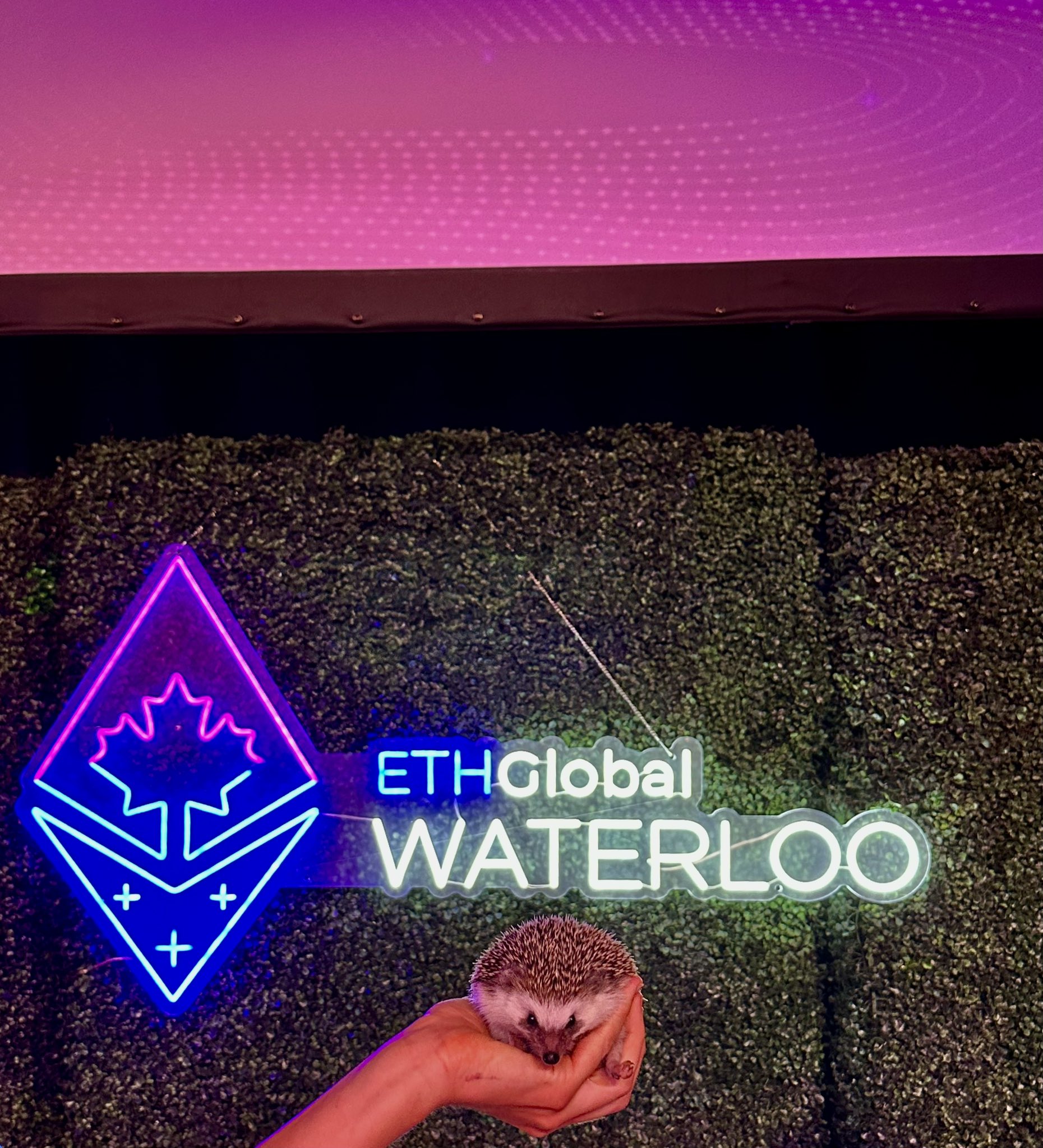
Me, Emergency Scan: A Decentralized Solution for Health Records
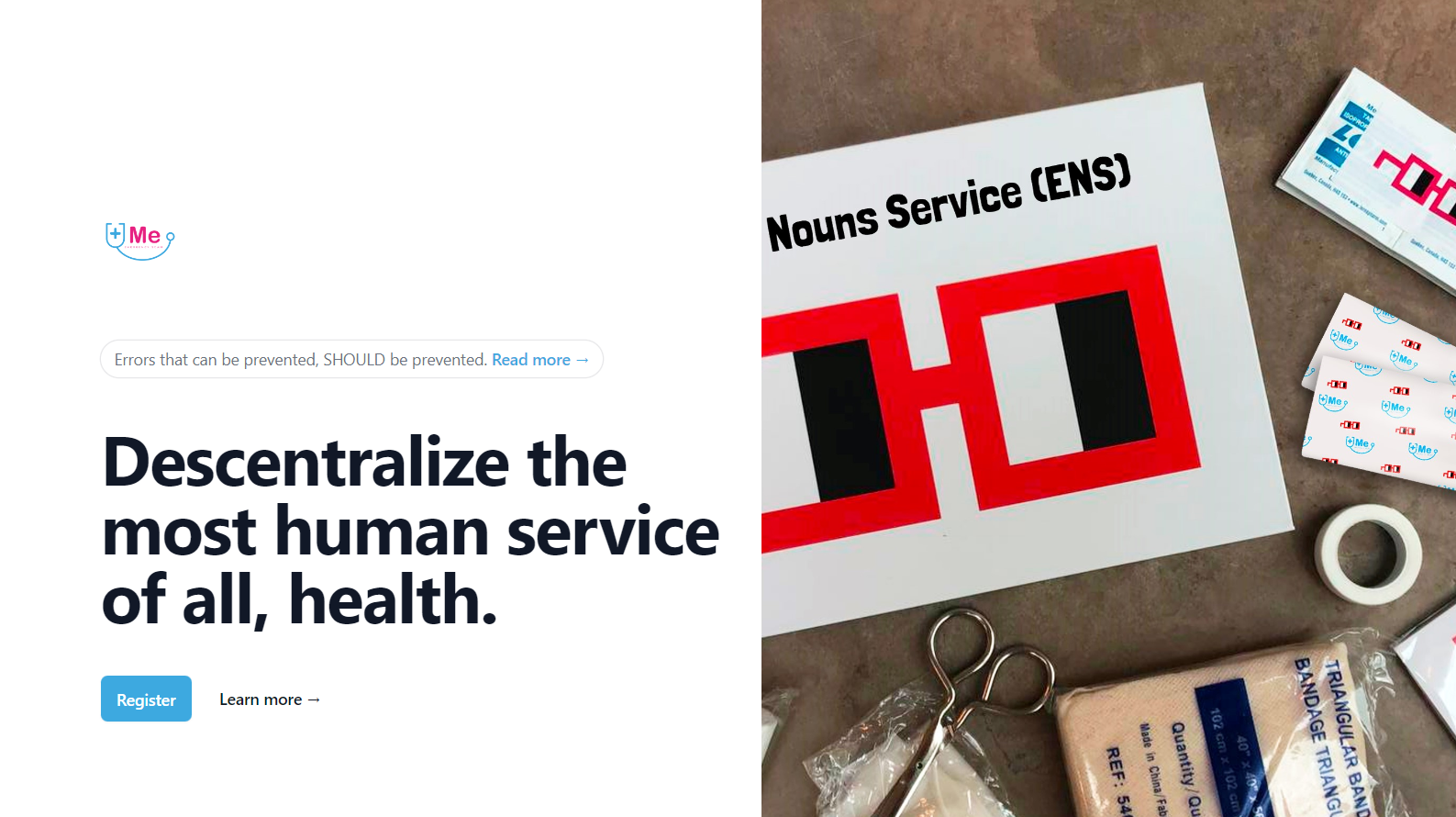
Me, Emergency Scan is decentralizing one of the most critical human services: health. The project focuses on health records, particularly in emergencies, aiming to provide users with the ability to upload, track, and update their medical information effectively and efficiently.
Traditionally, health information has been centrally stored by healthcare providers, making it challenging for patients to access their records, particularly in emergency situations. Me, Emergency Scan seeks to overcome these issues by enabling users to use their personal information effectively, thereby potentially saving lives and minimizing human error.
The project utilizes the Lit to encrypt and decrypt the data within contract parameters, enabling users to read data based on their user level.
Team: Victor Manuel Lopez Castellanos and Israel Cortes
Twitter: @isracts
Github: https://github.com/slashweb/me-emergency-scan
The Lit Paymaster: Decentralizing the Paymaster Landscape
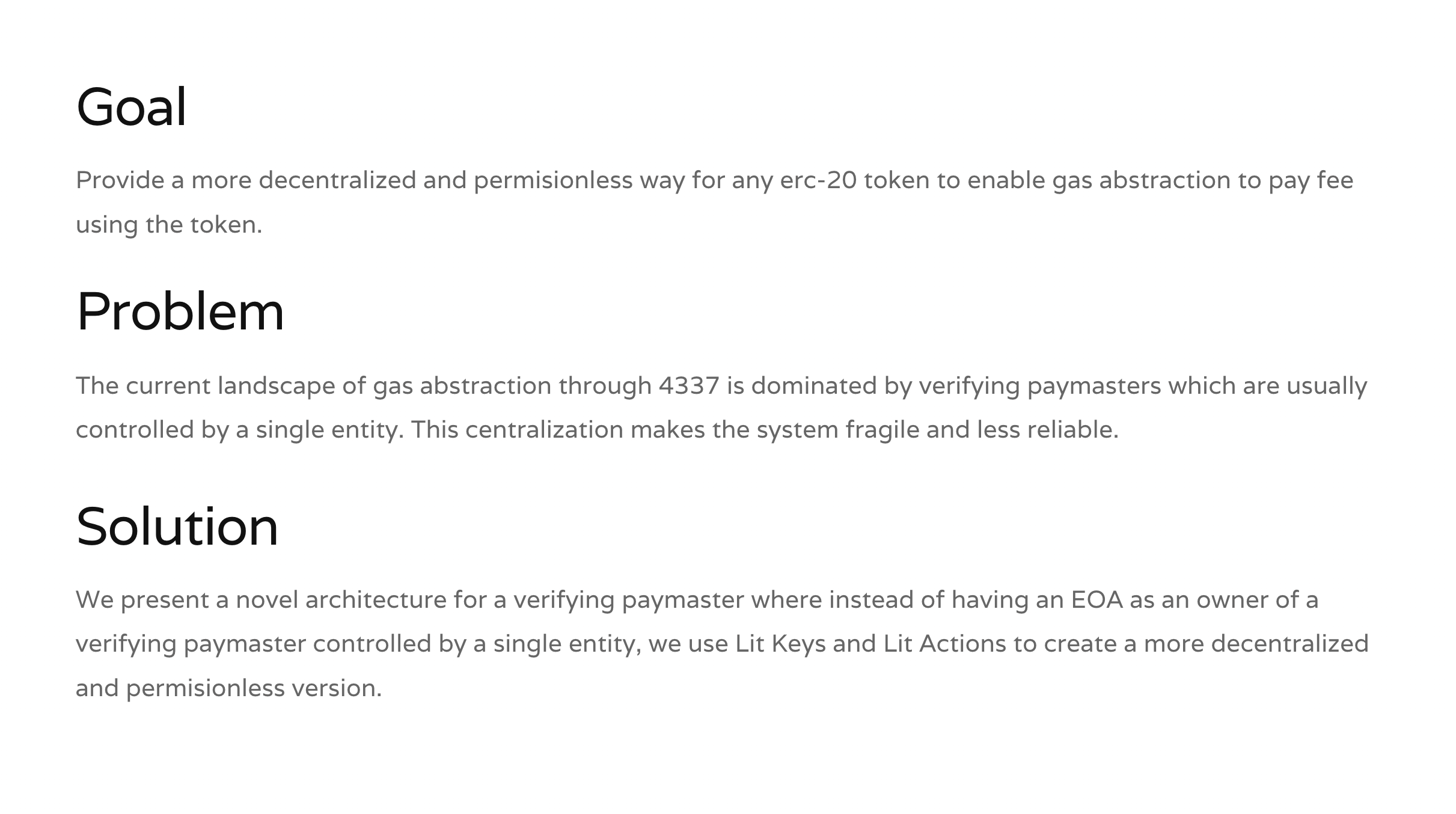
The Lit Paymaster project is revolutionizing the paymaster landscape, replacing the need for Externally Owned Accounts (EOAs) controlled by single entities with a more decentralized approach.
Current paymaster service providers often act as centralized gatekeepers to gas abstraction, controlling most verifying paymaster's owner EOAs. The Lit Paymaster introduces a novel architecture that uses Lit Programmable Key Pairs (PKPs) tied to Lit Actions rather than standard EOAs. This approach is more decentralized, permissionless, and robust compared to existing architectures.
The project's demo showcases a deployed paymaster with a non-custodial owner (a Lit PKP tied to Lit Actions), fetching the exchange rate of the token used for gas and outputting the hash and user operation.
In future iterations, the team wants to:
- Have better token filtering: Put more stringent criteria for which tokens are allowed.
- Add a mechanism to change the Lit PKP through governance (for example, a Governor contract controlled by the LP token holders).
- Have more sources for exchange rate: We want to add more sources to get the exchange rate of the token so we can have less risk on a single endpoint for the source of truth.
- Explore a Moonbag Paymaster variant: add incentives for addresses that stake ETH into the paymaster by introducing a small premium on the fees charged and issuing LP tokens that can be redeemed for the fee collected proportionally to the percentage ownership. This will allow those who stake ETH to get a yield in the tokens based on their usage for transactions lower than the market rate at that time. Can be referred to as demand-based buying.
Team: Shahrukh Rao, Srikant Aggarwal, Dirk Page
Github: Lit Paymaster
AnoniCard
AnoniCard is a decentralized business card solution designed to simplify and enhance the way individuals network.
The AnoniCard platform allows users to create their own digital business cards, complete with a short bio, job title, Discord handle, and even a randomly generated Noun avatar designed for anonymous users. This information is encrypted with Lit and only made available to individuals you've shared your card with, thereby ensuring user privacy.
The primary goal of AnoniCard is to eliminate the confusion and inefficiency often associated with tracking and maintaining a host of different usernames and contact information across various platforms. With AnoniCard, all your contacts are organized in one place - accessible through a user-friendly interface.
Sharing your AnoniCard is as easy as scanning a QR code, further simplifying the process of exchanging contact details at events like hackathons.
Team: Gediminas Petreikis and Daeun Yoon
Twitter: @Gedi_minas, @daa3230
Github: AnoniCard
HackFS
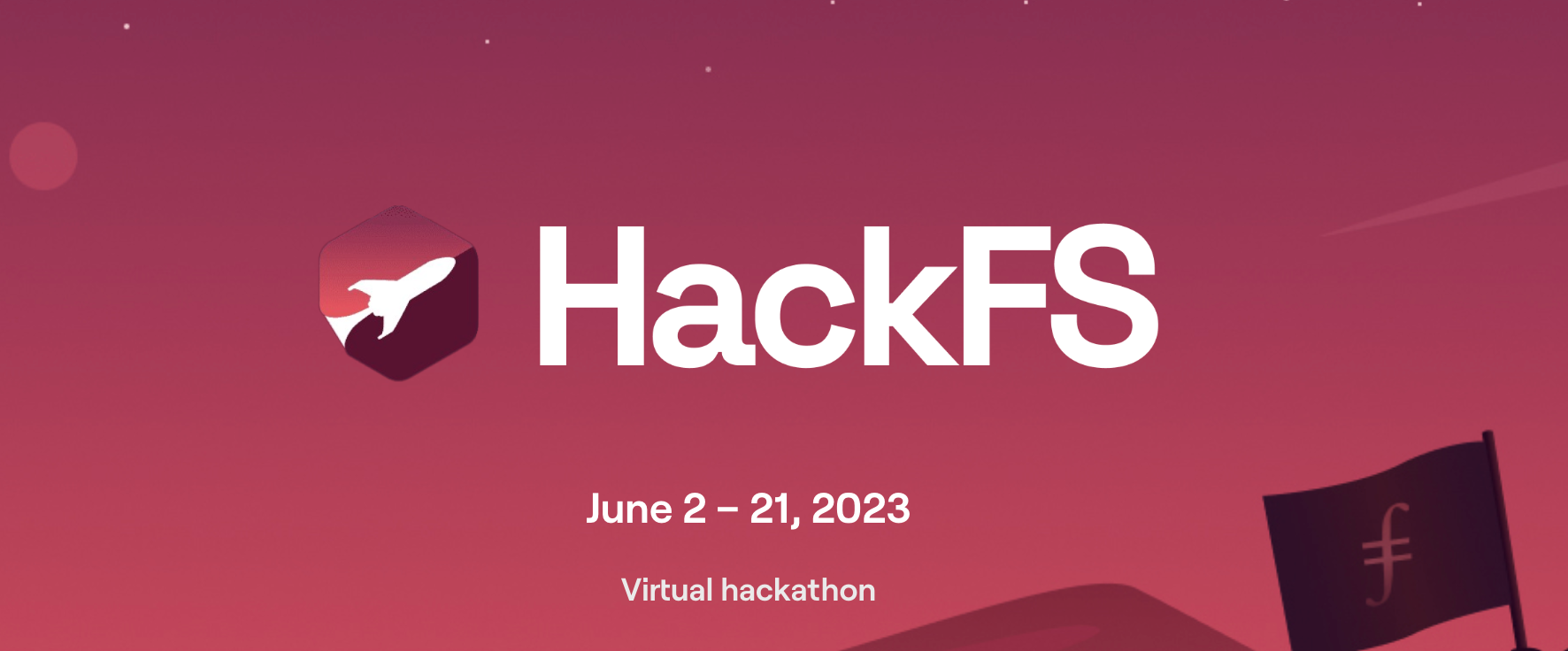
Wallet OTP
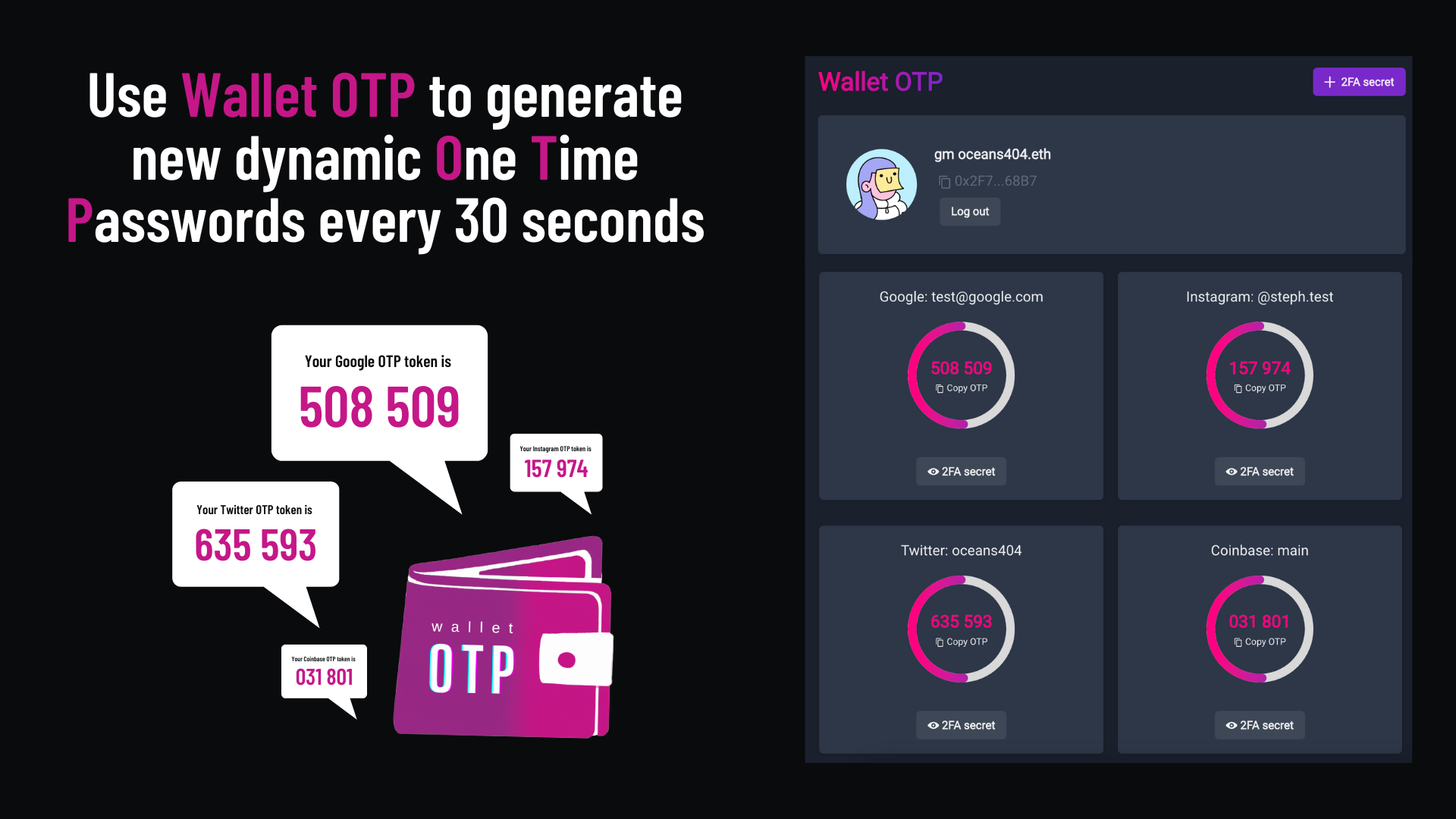
Wallet OTP provides 2FA for any web2 or web3 service by generating one-time-passwords from your wallet's encrypted secrets. It adds an extra layer of protection, ensuring your 2FA keys are as safe as your crypto. Wallet OTP can be accessed from any device, and all data is stored encrypted on distributed, decentralized storage.
Team: Steph Orpilla
Twitter: @0ceans404
Github: wallet-otp
Card Protocol
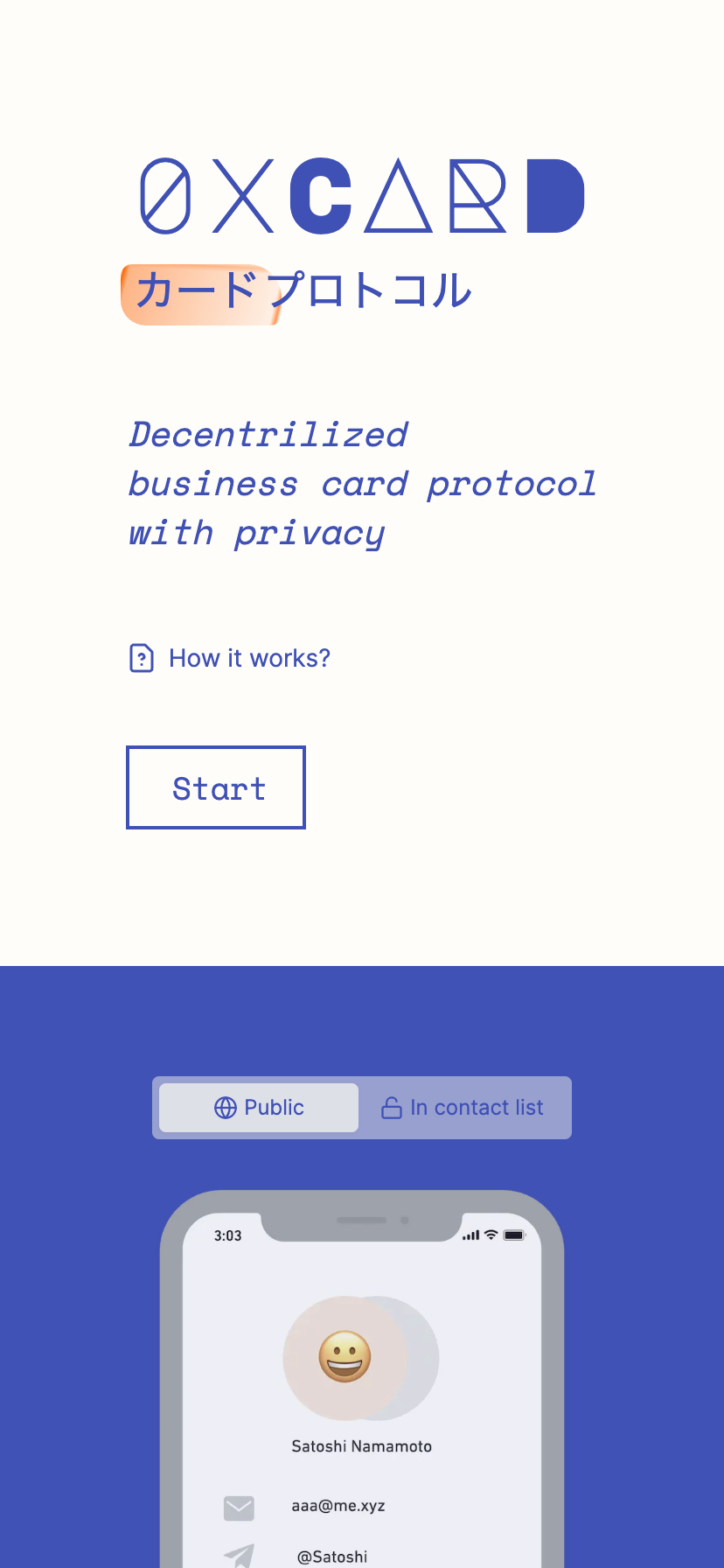
Card Protocol is a decentralized business card protocol with privacy at its core. Built to overcome the hassle of exchanging contact information at events, it gives users full control over their data and what they choose to share. Users can create Linktree-like pages with the added feature of setting the data range to "in each other's contact list." All data is encrypted with Lit and can only be decrypted if both parties have exchanged contact details.
Team: Yuji Yamaguchi
Twitter: @yujiym
Github: 0xcard
DefiKicks
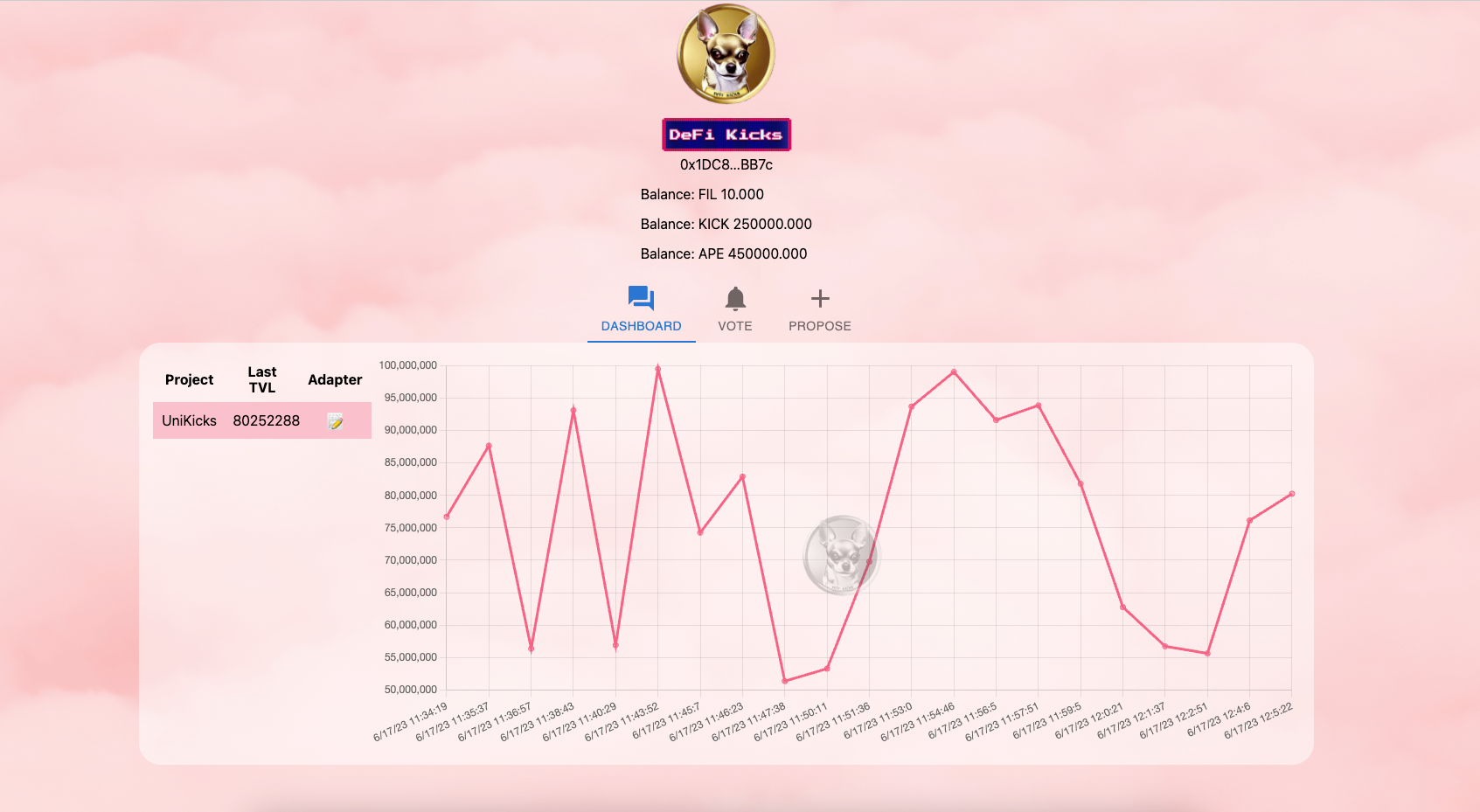
DefiKicks is a decentralized, community-governed Data DAO on Filecoin that democratizes DeFi data aggregation and TVL calculations. It enhances transparency and fosters collaboration through on-chain adapter proposals, off-chain voting, and interoperable token rewards.
DefiKicks combats centralization in DeFi data aggregators and fosters a community of trust by moving TVL computation on-chain and utilizing Lit's Programmable Key Pairs, Lit Actions, and Ceramic.
Team: Salvador Pablo Maldonado Turci
Github: defikicks
Ark
Tradable Decentralized Gaming IDs
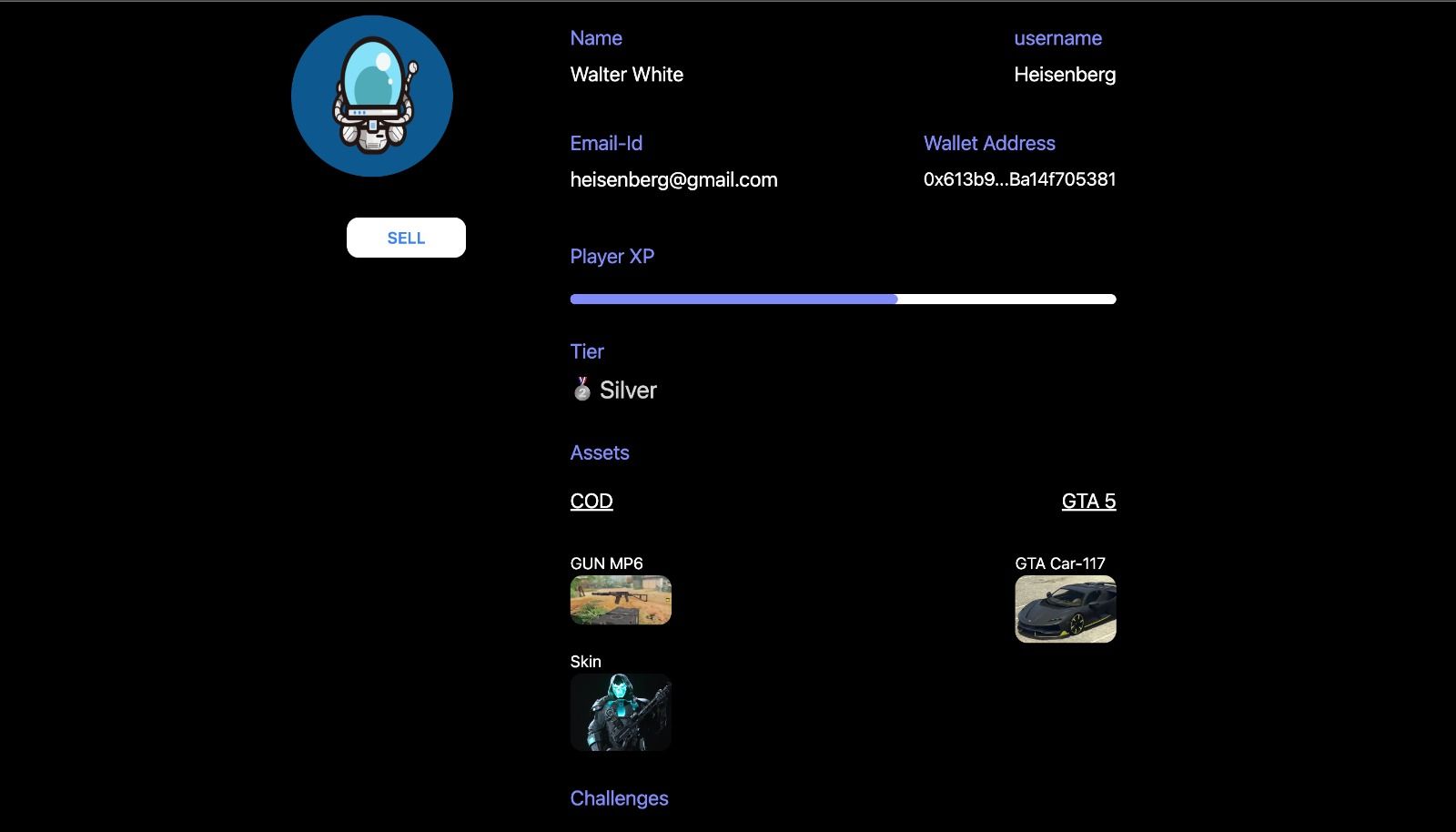
Ark is revolutionizing the gaming industry by creating an on-chain Decentralized Identifier (DID) infrastructure. With Ark, a user can log into any game with a single ID, hold their game assets, and trade them on the marketplace.
Ark tracks the games you play, maintains Ark stats like XP level, and even holds your in-game assets. You can buy game licenses and complete challenges to earn trophies. With a tier-based system, you can move from Silver to Platinum, earning perks along the way.
A notable feature of Ark is that the whole gaming identity created on-chain is tradable. This is made possible because of ERC6551, which allows an ARK ID to hold a smart contract account containing all of these assets and game progress.
Team: Dhruv Agarwal and Archit Sharma
Twitter: @0xdhruva and @Arcsh7
Github: Ark
Conclusion
The diverse range of projects are a testament to the innovation that exists within the web3 and wider tech community. They serve as shining examples of the ethos of decentralization, demonstrating that through creativity and technological advancement, we can build a future that is open and transparent.
We eagerly await to see what further developments and refinements these teams will bring in the future, and the next wave of innovation they will inspire in upcoming hackathons.
For now, you can find the team behind Lit at ETHGlobal Paris - we’re excited to support builders to free the web. Apply today, the application deadline is soon!
🥐 The application deadline is approaching fast!
— ETHGlobal (@ETHGlobal) July 5, 2023
🏃♀️ We're closing applications on July 7th at 11:59 pm ET ⎯ once and for all.
🔗 Apply here: https://t.co/orYxIx56Iy…
👇 If you're concerned about the state of the event (spoiler, there is no need to be), see our tweet below. https://t.co/BuSw6kTzLu pic.twitter.com/ZOs7RCQmtS
As an added bonus, participating in and building at these hackathons makes you eligible for Lit's Ignite Prize - a special challenge and reward that applies to all the hackathons Lit is involved in. It's a grand prize given to the most innovative use of Lit for projects that were started at or worked on during hackathons throughout 2023.
With Ignite, any project built with Lit at a Lit-sponsored hackathon will be eligible to win an additional $20,000. Learn more.
